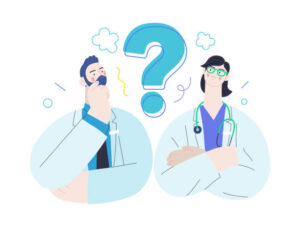Question About Health: Let’s answer some questions from the internet. What’s the Best Diet for Longevity? Eat food, not too much, mostly plants. Regions like Okinawa (Japan) and Sardinia (Italy) show plant-heavy diets (vegetables, beans, whole grains) correlate with 100+ lifespans. Prioritize whole foods over processed options.
Expert Answers to Your Top Health Questions
we’re cutting through the noise to tackle your most pressing health and nutrition questions. Whether you’re curious about trendy diets like keto, confused about protein myths, or wondering if organic food is worth the splurge – we’ve got you covered with science-backed answers.
Here’s what we’ll explore:
- The truth about carbs and fats – Which ones actually deserve their bad reputation?
- Practical swaps – Simple changes with big health payoffs (no deprivation required!)
- Diet debates settled – From intermittent fasting to gluten-free, what’s legit and what’s hype?
Question About Health: In your opinion, what is the best diet for health and longevity?
It’s a theme, not one specific diet. Seven words: eat food, not too much, mostly plants. That comes to us courtesy of the blue zones – five populations around the world in Ikaria, Greece; Sardinia, Italy; Okinawa, Japan; Loma Linda, California; and the Nicoya Peninsula in Costa Rica – where people most often live to be 100 years old, don’t get chronic disease or dementia.
They all adhere to that same basic theme: real food, mostly plants. Lots of vegetables, fruits, whole grains, beans, lentils, nuts and seeds, mostly plain water when thirsty. Aim to love the food that loves you back. If that’s the foundation of your diet, you can’t go too far wrong.
Question About Health: Can you have too much protein?
Yes, you can eat too much protein. Most Americans get about twice the recommended amount. Excess protein is acidic and can’t be used by the body – it doesn’t turn into big, strong muscles.
The body can store carbohydrate and fat, but not protein. Our carbohydrate store is called glycogen (about 1,200-1,800 calories worth). Since glycogen is already capped out, all surplus protein the body doesn’t need gets stored as fat.
Question About Health: Where does keto science and nutrition come from?
How does anyone believe that eating zero carbs and almost all fat could be good for you?” The origins of the ketogenic diet were for treating intractable epilepsy – restricting fuel to the brain could sometimes stop seizures when drugs failed.
But that should give pause: the diet’s calling card is starving the brain of a key nutrient to quiet brain activity. Is that really what healthy people want their diet to do? I’d say no.
Question About Health: What are some of the biggest nutrition, exercise, health myths?
The prevailing view seems to be that carbohydrate is bad. But all plant foods are carbohydrate – vegetables, fruits, whole grains, legumes – and all the best human diets are rich in good carbohydrates. Bad carbohydrates? Refined grains, added sugar, ultra-processed junk food.
Question About Health: How do you change your metabolism?
Good news – you can. Add muscle through resistance training three times weekly. More muscle means burning more calories 24/7. If you maintain current eating while adding muscle, you’ll lose weight because those new muscles need more energy.
Question About Health: Are all calories really created equal?
Foods aren’t all equal. Wholesome, natural foods fill you up on fewer calories than ultra-processed foods, which are manipulated to stimulate appetite and make you overeat.
Question About Health: What is a completely healthy weight?
BMI doesn’t measure health. Waist circumference is more reliable – over 35 inches for women or 40 inches for men increases risk. Belly fat is metabolically active and can impair liver function and insulin sensitivity.
Question About Health: How legit is the paleo diet?
A true paleo diet is difficult today. It requires no processed foods or dairy, only wild game meat (very different from modern beef – antelope is 7% fat vs beef’s 35%, with better fat composition). Our ancestors got about 100g fiber daily (vs today’s 25g recommendation).
Question About Health: girl dinner
While convenient, processed meats and snacks could be upgraded to healthier options like bean dips, whole grain crackers, dark chocolate (60%+ cocoa), and fruits with cheese – keeping convenience while improving nutrition.
Question About Health: macro vs micronutrients
Macronutrients (protein, carbs, fat) are visible and make up food’s bulk. Micronutrients (vitamins, minerals, antioxidants) are essential but microscopic.
Question About Health: if organic is worth it.
Organic avoids herbicides, pesticides, and antibiotics. Organic produce may have 20% more micronutrients. Most important for foods eaten whole (berries, lettuce, carrots).
Question About Health: just skipping breakfast
Studies show similar results between fasting and portion control for weight loss. Fasting can be a valid tactic if it helps some people eat fewer calories.
Question About Health: how ketosis feels
Ketogenic diets mimic starvation effects – some report euphoria or clarity, but also exhaustion, brain fog, and constipation. Not recommended long-term as it restricts many nutritious foods.
Question About Health: what to cut out: soda
Empty calories and excess sugar, easily replaced with water or seltzer.
Question About Health: if gluten-free is good for everyone
No – gluten-containing whole grains are nutritious. Only avoid if you have celiac disease or gluten sensitivity.
Question About Health:vegan nutrition.
Plants provide ample vitamins, minerals and protein (all contain essential amino acids). B12 may require supplementation.
Question About Health: the food pyramid
It’s been replaced by a plate model: 3/4 vegetables, fruits, and whole grains.
Question About Health: nutrition labels confuse them
Focus on ingredient lists – look for recognizable whole foods first (e.g., whole grain as first ingredient in grain products).
you can read more about Question About Health here and watch more about it here:



